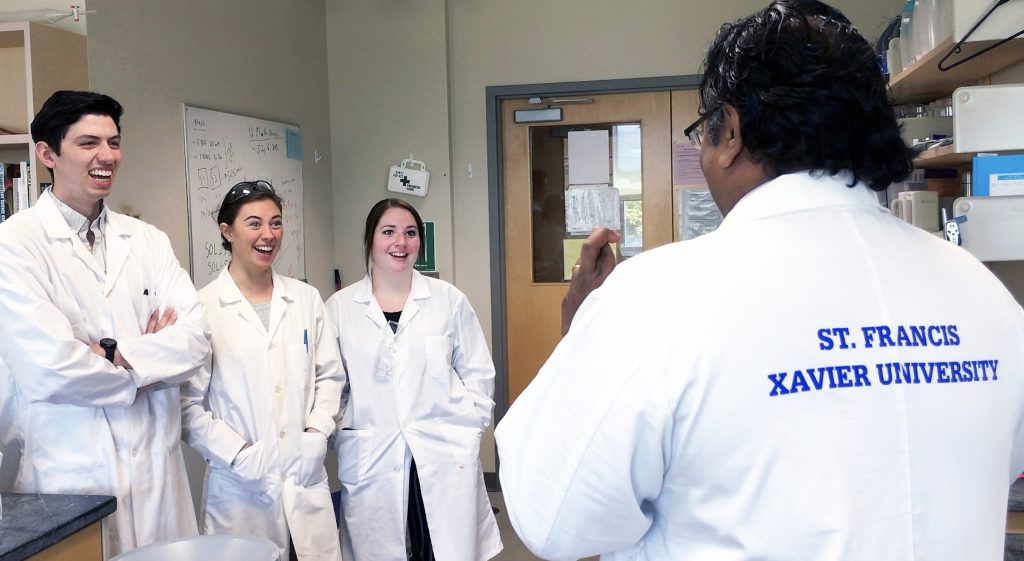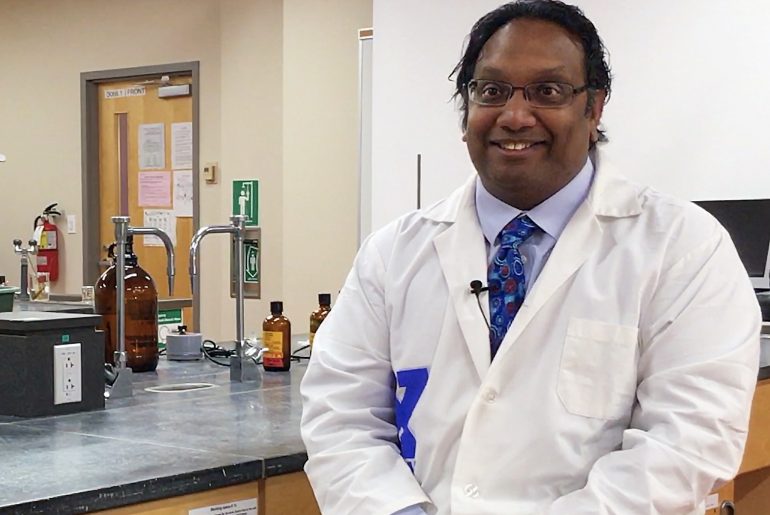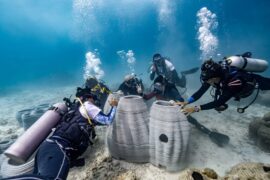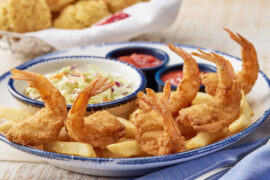An assistant professor and researcher in the chemistry department at St. Francis Xavier University in Nova Scotia, Canada, is intent on blurring the boundaries between fresh and frozen food products. After studying how water freezes for over a decade, Dr. Shah Razul (seen in photo above) has sharpened his focus and concentrated efforts to answer an important question facing one of Nova Scotia’s main exports: How does one keep lobster tasting fresh after it has been frozen?
“When you freeze something it gets damaged,” said Razul. “So that’s what my research is all about – preventing the damage caused by water freezing on biological materials.”
Inspiration for his research came after a trip to his home country of Singapore left him with a bad taste in his mouth – literally.
“I found frozen Atlantic lobster and got excited to share it with my family, but the quality was really poor,” he recalled. “As a chemist, I thought to myself, I can do better.”
Razul began his investigation at the molecular level. The center of the research, he said, is on compounds called Cryoprotectants (CPAS) that protect biological structures from damage when ice forms.
“These Cryoprotectants are all-natural compounds, some of them are already found in lobster. I’m researching how they can be tuned to better preserve frozen lobster and create a higher-quality product for consumers,” he explained.
In 2017, Razul received a grant from the Canadian Foundation for Innovation John R. Evans Leaders Fund and matching funds from Research Nova Scotia (RNS) to purchase leading-edge laboratory equipment that allowed him to examine the freezing processes and stability of frozen lobster during storage. The infrastructure includes a Differential Scanning Calorimeter (DSC), a UV-VIS spectrophotometer and ultra-low temperature freezers.
The new infrastructure opened up opportunities for the professor to involve students in his work and expanded the lab’s capacity for conducting research. Not surprisingly, it wasn’t hard for him to put together a team of students who were keen to gain experience outside of the classroom.
Quinn Keily-Finlay, a fourth-year human kinetics student, is part of Razul’s team of researchers. She describes the hands-on work as empowering.
“We’re really lucky for the opportunity to learn to be better scientists and to use these tools,” she said. “Without access to the UV-VIS spectrophotometer, it wouldn’t be possible for me to do the study that I’m working on.”
Since installing the equipment, Razul and his students have been busy tuning CPAS for cooked frozen lobster, with positive results. Now, they’re excited to be entering the next phase of study where they’ll attempt to produce high-quality cryopreserved raw lobster meat, and eventually whole raw lobster.
“Imagine if we were able to take a raw lobster and cryopreserve it so you don’t have to ship the lobster with the water,” pondered the professor. “The savings for companies would be huge.”
According to Razul, lobster lovers aren’t the only ones who should be happy about the prospects of his research. In time, he hopes to apply his findings to more species of seafood, and possibly other types of food.
“The research direction that the equipment will give me, and the application, is just so rich, because a lot of food is frozen,” said the professor.






